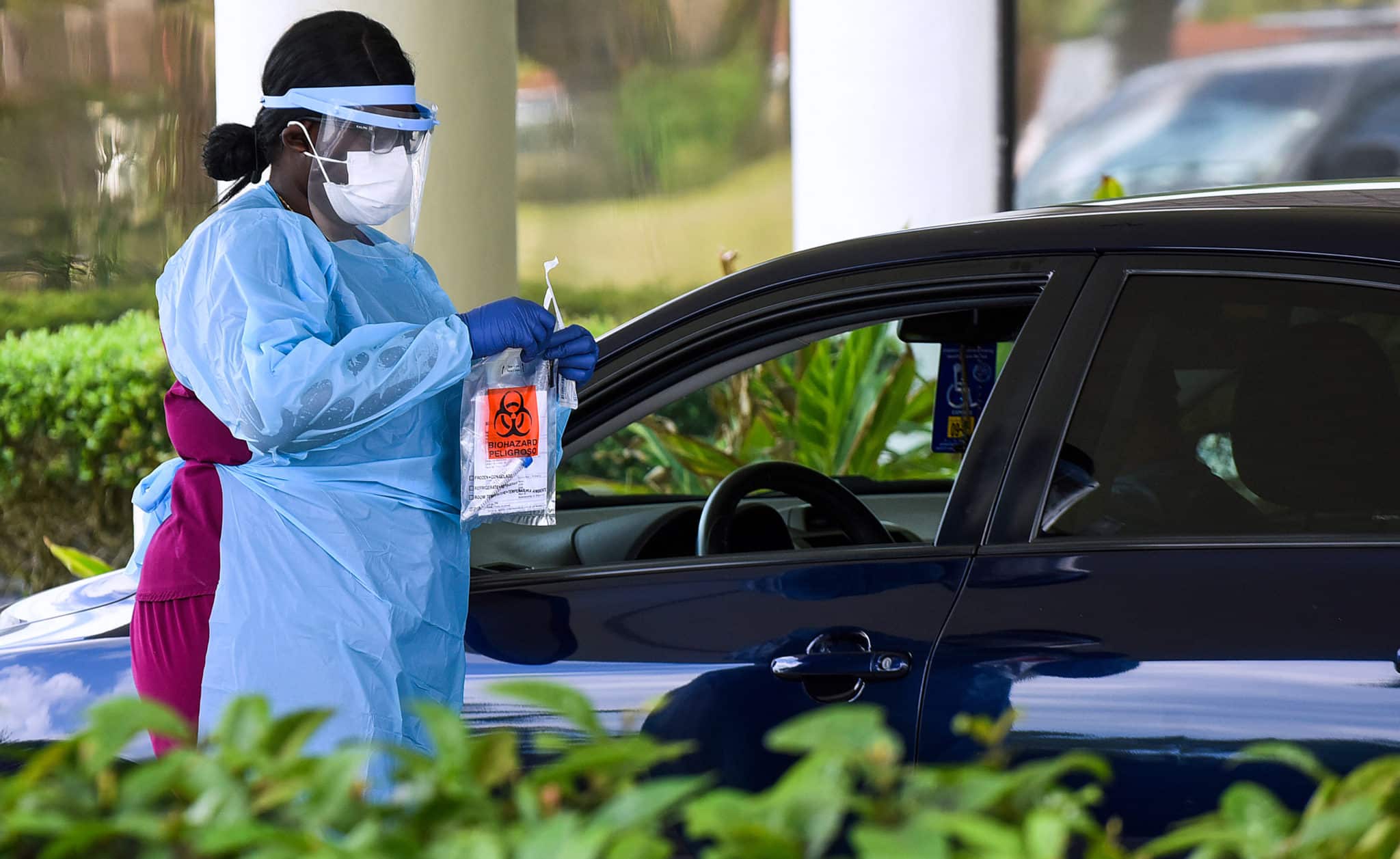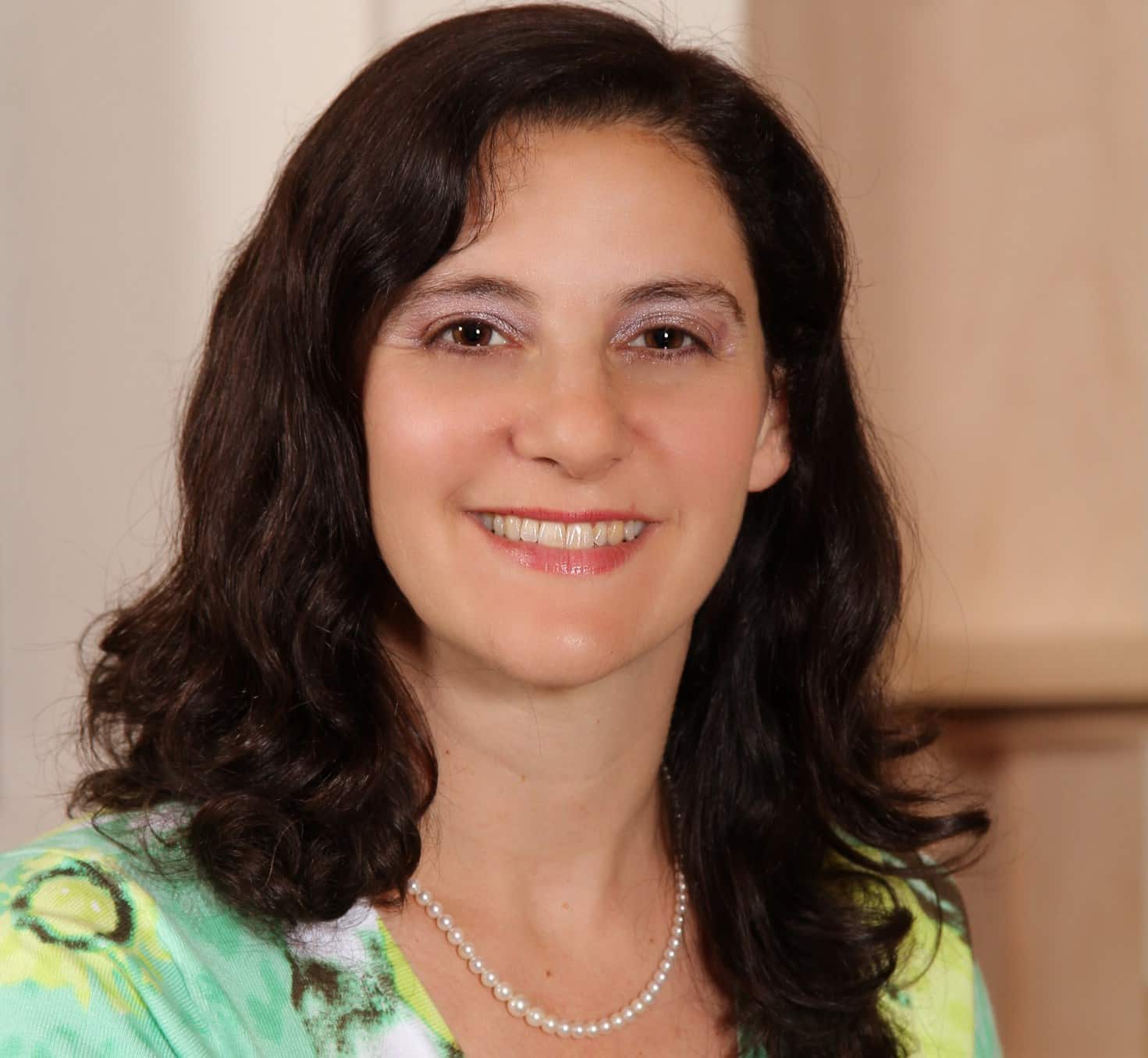 A health care worker conducts coronavirus nasal swabs at drive-through testing facility, in Florida (Paul Hennessy/Echoes Wire/Barcroft Media via Getty Images)
A health care worker conducts coronavirus nasal swabs at drive-through testing facility, in Florida (Paul Hennessy/Echoes Wire/Barcroft Media via Getty Images) This summer, the coronavirus caused many disappointments. My daughter attended one day of surf camp before the camp closed. The scouting camp my children planned to attend was canceled. The summer has felt like one wave of loss after another, crashing down in rapid succession.
We decided to go camping instead. For three days, we swam in the ocean during the day and camped at night. I cheered as the kids learned to surf. We wore masks, frequently washed our hands, and never forgot the pandemic. Still, somehow, we found an oasis of joy amid summer’s sorrows.
Reflecting on the trip, I recalled a story Reb Mimi Feigelson told at a Board of Rabbis High Holiday workshop session earlier that week. She said that at the beginning of the pandemic, she started to recite the Avinu Malkeinu prayer every day because this prayer is recited daily in times of calamity. But after a time, she realized that if she continued reciting that prayer every day until Rosh Hashanah, the prayer wouldn’t feel special on the holiday itself. So she decided, “Corona, you can’t take my Avinu Malkeinu,” and she stopped reciting that prayer.
With all that the coronavirus is taking, she reclaimed her ownership on Avinu Malkeinu. She posed the question: “What can’t corona take from you?”
This idea also is echoed in this week’s Torah portion. In Moses’ youth, when God instructed him to tell Pharaoh to free the Israelites, Moses replied that he wasn’t up for the task because he wasn’t “a man of words.” God suggested Aaron speak for Moses. Yet, in his later years, Moses taught a book full of words: Devarim (Deuteronomy), which begins, “These are the words that Moses spoke.”
Although Moses’ speech impediment stole his words in his youth, in old age, Moses stole back his words — bequeathing those wise words to the Israelites and all subsequent generations. During his last years, Moses faced overwhelming disappointment. He lost his greatest dream of entering the land of Israel after 40 years of wandering the desert. But even in the face of this tremendous loss, he found his voice.
As the coronavirus exacts a toll, we each must decide what not to let the coronavirus steal from us.
Like Moses in his later years, we, too, are facing great anxiety and adversity. Like the ancient plagues, the coronavirus is stealing from us every day. It’s taking loved ones, jobs, marriages, celebrations and adventures. The coronavirus is a swift and powerful thief. Many of these losses are unavoidable and irreplaceable. But is there anything we can reclaim for ourselves?
When facing a cholera epidemic in 1831, Rabbi Akiva Eiger advised his community to “distance yourself from any kind of sadness.” That’s no easy task nowadays, as the daily death toll rises on the side of the television screen, and every newspaper and broadcast recount new horrors. Four months into the pandemic, I realize I need to do a better job of self-care, limiting my intake of news, anxiety and fear, and seek sources of comfort and faith.
Even during the pandemic, we need to grab time for ourselves. Because this pandemic is a marathon, not a sprint, we’d better pace ourselves. As the coronavirus exacts a toll, we each must decide what not to let the coronavirus steal from us.
A friend who recently lost his job and marriage started to write a book he envisioned years ago but never had the time to write until now. “The Lord Works in Time-Release-y Ways,” he told me of the title. Like Moses, when facing great loss, he found his voice. The coronavirus has stolen so much, but Feigelson reclaimed her Avinu Malkeinu, my friend revived his determination to write a book, and my kids and I captured a few days of sun and surf.
This year, perhaps there’s one line we should add to the age-old prayer:
“Avinu Malkeinu, in these painful days, may we find some joy, passion and love that the coronavirus can never take away. Amen.”
Rabbi Ilana Grinblat is the vice president of community engagement for the Board of Rabbis.





















 More news and opinions than at a Shabbat dinner, right in your inbox.
More news and opinions than at a Shabbat dinner, right in your inbox.